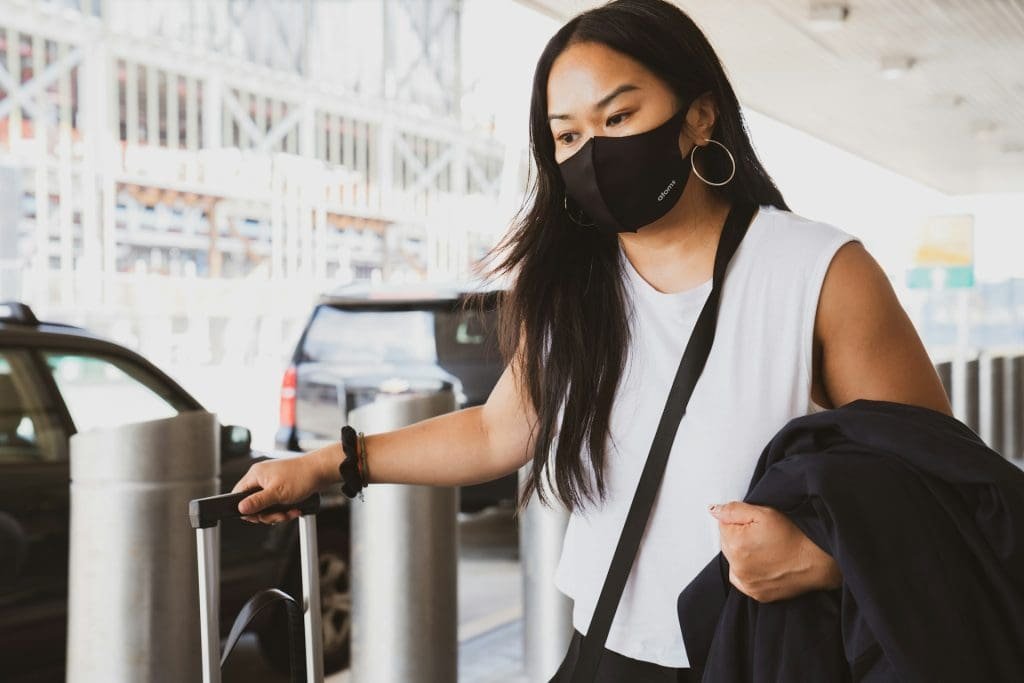Photo from Unsplash
As summer approaches and travel plans begin to take shape, it’s essential to prioritize your health and well-being. Whether you’re a seasoned explorer or venturing abroad for the first time, ensuring your health is safeguarded can enhance the enjoyment of your journey. Here are some essential travel tips and advisories recommended by the Public Health Agency of Canada¹ to help you prepare for a safe and memorable trip.
Before you leave on your trip:
- Consult a health care provider or visit a travel health clinic preferably 6 weeks before travel to get health advice and recommendations, and discuss:
- your routine vaccinations to ensure they’re up to date
- any additional medications or vaccines that may be right for you based on your itinerary
- Buy travel health insurance, if you don’t have an existing plan, even if you’re only traveling outside Canada for 1 day.
- Pack a travel health kit to help you deal with minor health issues.
- This is especially important in places where first aid supplies or medication may not be readily available.
Learn more about Travel Health

Currently, there are important travel health notices regarding diphtheria, mpox (monkeypox), polio, and yellow fever that travellers should be aware of:
Diphtheria
Diphtheria is a highly contagious bacterial infection that spreads through respiratory droplets, skin sores, or contaminated objects. Symptoms include a sore throat, swollen neck, fever, and difficulty breathing.
Several countries in West Africa are experiencing a higher-than-expected number of cases. Ensure your diphtheria vaccination is up-to-date as part of your routine immunizations, especially if travelling to affected areas.
Learn more about Diphtheria
Mpox (Monkeypox)
Mpox is a viral infection characterized by a painful rash, fever, and swollen lymph nodes. It spreads through direct contact with lesions, body fluids, contaminated objects, or respiratory droplets.
An outbreak is ongoing in several provinces of the Democratic Republic of Congo. The Imvamune® vaccine is available for high-risk individuals. Avoid close contact with infected persons and practice good hygiene to reduce your risk.
Learn more about Mpox (monkeypox)
Polio
Polio is a highly infectious viral disease that can cause permanent nerve and muscle damage, leading to paralysis. It spreads through contaminated food and water. Most infected individuals show no symptoms, but some may experience fever, sore throat, headache, and muscle pain.
The World Health Organization (WHO) has declared the international spread of poliovirus a public health emergency. Countries such as Afghanistan, Pakistan, and parts of Africa have circulating poliovirus. Travellers to these regions may need a polio booster dose even if previously vaccinated. Ensure your vaccination is documented on the International Certificate of Vaccination or Prophylaxis.
Learn more about Polio
Yellow Fever
Yellow fever is a viral disease transmitted by infected mosquitoes, causing symptoms like fever, chills, headache, and jaundice. Severe cases can lead to liver damage, bleeding, and organ failure.
Yellow Fever Vaccination Centres are designated by the Public Health Agency of Canada to meet the requirements of the International Health Regulations. A Yellow Fever Vaccination Centre is a health care site where the Canadian public can receive the yellow fever vaccine and obtain the required International Health Regulations documentation needed for entry into countries where yellow fever vaccination is mandatory. These centers ensure the quality and safety of procedures and materials used.
Learn more about Yellow Fever
As an additional recommendation, sign up with the Registration of Canadians Abroad service to stay connected with the Government of Canada in case of an emergency abroad or an emergency at home².
By staying informed and taking these preventive measures, you can help protect your health and make the most of your travels.
Sources:
1. Public Health Agency of Canada. (n.d.). Plan for Health Before and During Travel. Retrieved from https://www.canada.ca/en/public-health/services/travel-health/plan-health-before-during-travel.html
2. Government of Canada. “Registration of Canadians Abroad.” Travel.gc.ca, Government of Canada, travel.gc.ca/travelling/registration
Public Health Agency of Canada. (2024). Diphtheria: Advice for travellers. Government of Canada. Retrieved from https://travel.gc.ca/travelling/health-safety/travel-health-notices/528
Public Health Agency of Canada. (2024). Mpox (monkeypox): Advice for travellers. Government of Canada. Retrieved from https://travel.gc.ca/travelling/health-safety/travel-health-notices/515
Public Health Agency of Canada. (2024). Polio: Advice for travellers. Government of Canada. Retrieved from https://travel.gc.ca/travelling/health-safety/travel-health-notices/508
Public Health Agency of Canada. (n.d.). Yellow Fever Vaccination Centres in Canada. Government of Canada. Retrieved from https://www.canada.ca/en/public-health/services/travel-health/yellow-fever.html
Photos from Unsplash





